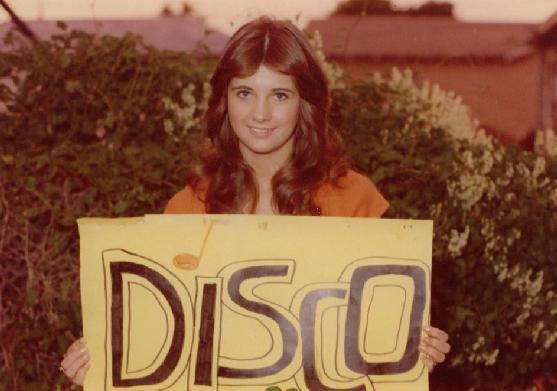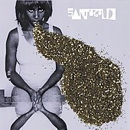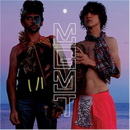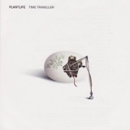Unraveling musical mysteries is part of what motivates me as a music journalist. I don’t claim to be very good or thorough at it, but the process alone is a way to appreciate the beauty and complexity of music-making that isn’t necessarily transparent through listening alone (or, er, the sonic equivalent of “transparency”).
This post is one such example and it begins, for me at least, with a song called “Happy Soul” that appears on an album by The Moon People that I picked up at the Groove Merchant a few years back. (Note: ironically, “Happy Soul” is the one song I did NOT include in the Suite but for reasons that will become clear shortly). “Happy Soul” is very striking, especially for a Latin soul song because 1) it’s fast and 2) it’s funky. Really funky. Funkier than most Latin soul songs one can think of. I would play it out when I could, especially because it’s a great “transition” track between Latin and funk sets. It’s not surprisingly then that, in 2006, when the DJ Premier-produced Xtina Aguilera single, “Ain’t No Other Man” came out, I recognized the sample immediately.
At least I thought I did.
A little while later, I heard “Happy Soul (With a Hook)” by Dave Cortez with the Moon People and it was basically the same instrumental track as “Happy Soul” but with Cortez’ trademark organ vamping all over it. Then, last year, I discovered the Latin Blues Band and their album, Take a Trip Pussycat. On there, they have a song called, “I’ll Be a Happy Man” and it is basically, the same exact song as “Happy Soul” only with vocals (and without the Cortez organ).
The plot thickened.
The LBB, the Cortez single and the Moon People album are all on Speed, a smaller Latin label of the late ’60s that specialized in Latin soul and boogaloo bands, including Frankie Nieves, and one of the rare female Latin groups, Dianne and Carole and the Latin Whatchamacallits. It’s one of the great, great Latin boutique labels of that era and the Big Ol’ Bag O Boogaloo series comps heavily from their catalog (with some odd omissions but that’s for another time). It was on that album that I heard The Moon People’s “Hippy Skippy Moon Strut” which sounded like the Cortez’ song but minus the organ and with a new piano arrangement.
WTF?
Around the same time I acquired a copy of the LBB album (thanks Rodney!), I also stumbled across this feature on the great Spectropop website (Latin fans should check out their thorough Tico feature). They finally helped me put many of the details together and I’m trying not to duplicate their already great work but, there was one element yet to add here: the testimony of Bobby Marin.
Marin is a composer and producer and he and his brother Richard were major players in the NY Latin scene in the 1960s and ’70s. I spoke to Marin while putting together the liner notes for an upcoming Fania anthology on Joe Bataan and wanting to take advantage of being able to speak to such a storied veteran in the scene, I asked him what some of his favorite compositions were and he named “I’ll Be a Happy Man.” At that point, I didn’t own the album yet so I had no idea he, along with Louie Ramirez and other players, were in the Latin Blues Band and I asked him to trace for me the history of the song. Between the Spectropop site and Marin’s own information, here’s what I was able to pull together (and to be sure, I really should talk to Marin again to fill in blanks):
Morty Craft – who ran Speed and was the main producer for the label – reassembled the Latin Blues Band into The Moon People. I’m not clear why he did this nor why he would have the group essentially record over their own LBB backing tracks with slight changes (but sans vocals) and then release it as its own album. I guess Craft felt like he could sell consumers the same songs twice. “Happy Soul,” from what I can tell, is simply “I’ll Be a Happy Man” without vocals. Well, almost without vocals…Marin told me that when he was in the studio, editing the Land of Love album, he insisted that they keep something of his original vocals, which ended up being a “whoooo!” somewhere in there. (In any case, I didn’t include “Happy Soul” in the suite since it’s a subtraction with no additions, unlike the other songs).
Soon thereafter, Craft sold the mechanical rights to that instrumental to Morris Levy at Roulette. At that point, the song transforms into “Happy Soul With a Hook.” The original piano is stripped off and replaced with Cortez’ organ playing plus some spacey wah-wah guitar. Speed ends up releasing this “new” song as a single. According to Spectropop, “Hippy Skippy Moon Strut” appears just a few months later and it is basically “Happy Soul With a Hook” minus organs, keeping the wah-wah, and throwing on that new piano arrangement I mentioned plus some vocals yelling, “hippy skippy!” and similar phrases. That single appears on Roulette rather than Speed (possibly because the latter had been purchased by Roulette by this point). Then fast forward nearly 40 years and DJ Premier flips “Hippy Dippy” for Xtina and the story ends.
Well, not quite.
My convo with Marin yielded two more tidbits of information. First of all, RCA apparently didn’t clear the sample correctly. My guess is that they cleared the mechanical rights but not the songwriter rights and when Fania (who, by now, owned the Speed catalog) figured this out, they got ready to sue. The problem is: they didn’t know who the original composer was either and one day, when Marin was visiting, they asked him, “hey, would you happen to know who the composer is?” upon which Marin replied, “yeah…me.” So as it turns out, Marin is waiting to see if a settlement happens, and if so, he likely stands to make a nice piece of change off this.
The second piece of info I gleaned from him was around who the hell was the drummer on the song. After all, one reason why the song stands out so much, why it probably got remade three times and then sampled, is because of those drum breaks. They’re unusual for a Latin soul song – I can’t think of many other songs in that era that featured open breakbeats – so I had to ask Marin about it. His reply, “well, that was Bernard Purdie.”
Jaw drop.
That explains quite a bit…and it makes total sense (Purdie did a grip of studio work in NY in that era, plus the drumming sounds like something he’d put together) but it’s a detail that, as far as I can tell, no one has ever noted before. And that, my friends, is the kind of discovery that motivates me to get up every morning. With all that, thanks for reading…here’s the “Happy Soul Suite” for your edification:
Soul-Sides.com presents…The “Happy Soul Suite”
Created from…
The Latin Blues Band feat. Luis Aviles: (I’ll Be A) Happy Man
From Take a Trip Pussycat (Speed, 1968)
Dave Cortez with The Moon People: Happy Soul (With A Hook)
From 7″ (Speed, 1968). Also on El Barrio: The Bad Boogaloo.
The Moon People: Hippy, Skippy Moon Strut
From 7″ (Roulette, 1969). Also on Big Ol’ Bag O’ Boogaloo Vol. 1.
Christina Aguilera: Ain’t No Other Man
From Back to Basics (RCA, 2006)



